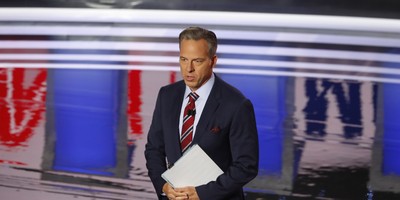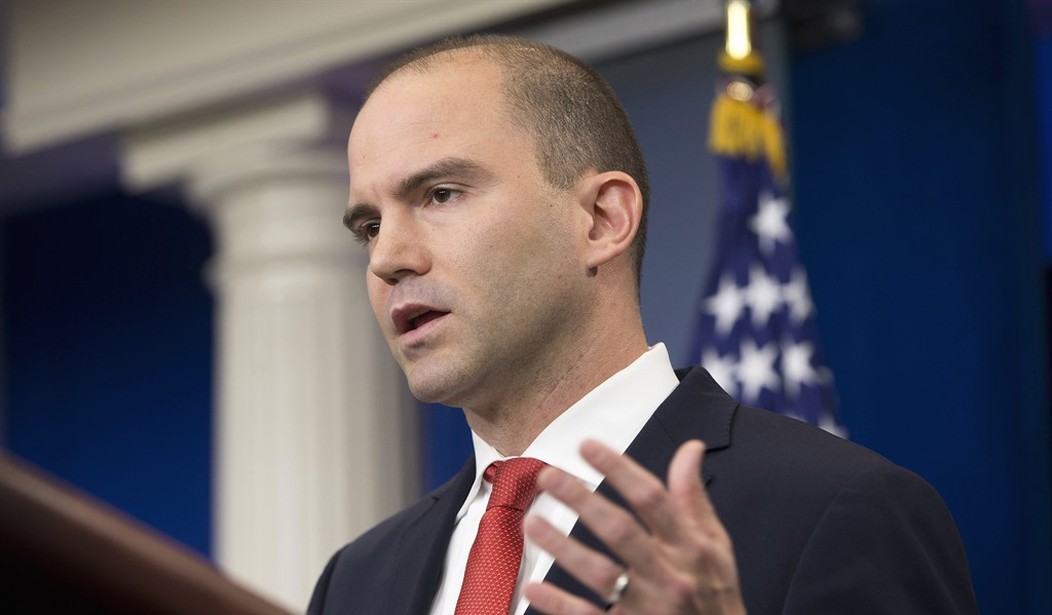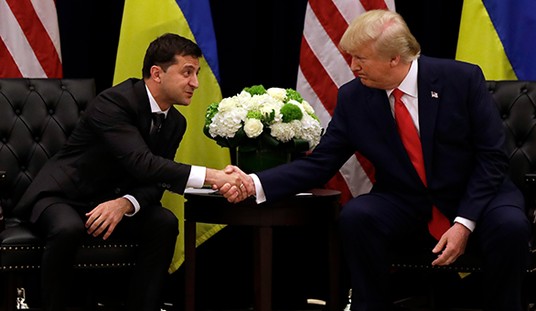Among the most serious charges that President Obama and his supporters have leveled against President Bush and Vice President Cheney: They “cherry-picked intelligence.” The phrase suggests that, while in office, they sorted through the information provided by America’s spy agencies, selecting the tidbits that supported their policies while discarding anything that might cast doubts on their conclusions.
So what has been Mr. Obama’s record in this area? Thanks to an incisive essay by David Samuels in last Sunday’s New York Times magazine, we now know.
To sell the Iran deal -- which Mr. Obama considers his signature foreign policy achievement -- the public was told there was “a new political reality in Iran, which came about because of elections that brought moderates to power in that country.”
Mr. Samuels asks Leon Panetta, who served as CIA director in the Obama administration, “whether it was ever a salient feature of the CIA’s analysis when he ran the agency that the Iranian regime was meaningfully divided between ‘hard-line’ and ‘moderate’ camps.” Mr. Panetta answers without equivocation: “No.”
The intelligence community clearly understood that Supreme Leader Ali Khamenei and the Islamic Revolutionary Guard Corps “ran that country with a strong arm.” They faced no challenge from a rising moderate faction.
In other words: President Obama did not cherry-pick intelligence – he disregarded it entirely. He and his top foreign policy advisor, Ben Rhodes, made up a fictitious narrative that they thought would sell better than the truth.
They built on that falsehood, persuading journalists that Iran’s “moderates,” in particular Hassan Rouhani, elected Iranian president in 2013, were open to compromise and eager to improve relations – an opportunity too good to pass up.
In fact, however, the president’s envoys had begun negotiating with Iran’s rulers long before the elections. Indeed, from his first days in the White House, a time when the decidedly immoderate Mahmoud Ahmadinejad was Iran’s president, Mr. Obama’s goal was a “pivot toward Iran.” And to achieve that, he was willing to give away a lot while demanding little in return.
Recommended
All this and more, Mr. Rhodes acknowledges to Mr. Samuels. Indeed, he seems proud of his ability to manipulate the media, poke a finger in the eye of foreign policy experts – he refers to them as “the Blob” -- and deceive the public.
Mr. Rhodes, now 38, was a student of fiction writing at New York University on 9/11/01. Mr. Samuels details the path he followed to become “the Boy Wonder of the Obama White House” -- “the single most influential voice shaping American foreign policy aside from Potus himself.”
Mr. Samuels adds that Mr. Rhodes’s “lack of conventional real-world experience of the kind that normally precedes responsibility for the fate of nations – like military or diplomatic service, or even a master’s degree in international relations, rather than creative writing – is still startling.”
And note Mr. Rhodes’s title: deputy national security advisor for strategic communications. In the past, there has always been some appropriate distance between those responsible for crafting national security policy and the spin-meisters responsible for selling it. It is unprecedented for policy making and public relations to be fused as they have been in the Obama administration.
You’ll be unsurprised to learn that Mr. Rhodes had no difficulty finding credulous cheerleaders in the press as well as “groups like Ploughshares, the Iran Project and whomever else” that he could utilize as “force multipliers” to help him shape the news and spread his preferred story lines.
Those story lines, Mr. Samuels concludes, were riddled with “misleading or false” implications. That enabled the president to “evade what might have otherwise been a divisive but clarifying debate over the actual policy choices that his administration was making.”
“We drove them crazy,” Mr. Rhodes says of the deal’s opponents. That, at least, is no lie. What was so maddening (to people like me) was that the White House seemed impervious to evidence. We now know it was worse than that: Evidence was irrelevant and unwelcome. Mr. Rhodes was no more constrained by the facts than a novelist would be.
“Framing the deal as a choice between peace and war was Rhodes’s go-to move – and proved to be a winning argument,” Mr. Samuels writes. Here is my one quibble with Mr. Samuels: Mr. Rhodes and President Obama actually lost the argument.
The Iran deal was not presented as a treaty because Mr. Obama and his young factotum knew they couldn’t garner the Senate’s consent. In the end, 60 percent of Congress disapproved the deal. Polls showed public disapproval running 2-to-1.
The deal was concluded despite that because Mr. Obama used – and perhaps exceeded – the powers of the presidency. He framed it as a “non-binding political agreement,” an imaginative construct that Congress could neither check nor balance. And he attempted to shut down further debate. “It’s those hardliners chanting ‘Death to America’ who have been most opposed to the deal,” Mr. Obama said in a speech -- written by Mr. Rhodes -- last August. “They’re making common cause with the Republican caucus.”
Where all this has left us: Iran’s rulers have agreed to delay a nuclear weapons program they do not acknowledge exists in return for money, the lifting of sanctions and, most consequentially, “sunset” provisions -- a promise to welcome the Islamic Republic, the world’s leading sponsor of terrorism, into the nuclear club in a decade or so. The hope held out by President Obama and Mr. Rhodes is that by that time the moderates will have brought about significant change.
But since those moderates are only figments of the imagination, such a happy ending is unlikely. By contrast, Iran’s hardliners, imperialists and America-hating jihadis remain non-fiction.

























Join the conversation as a VIP Member